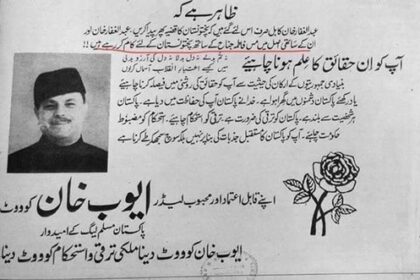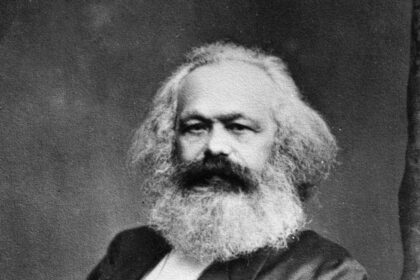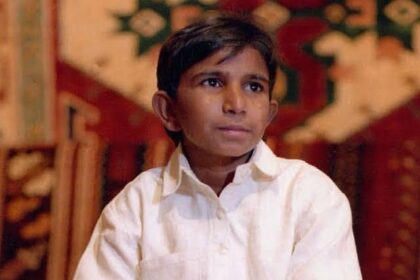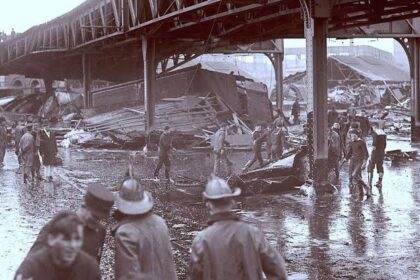In every nationŌĆÖs history, there are stories that transcend time. The essence of nationhood comes alive in stories of these individuals whose sacrifices are etched into the collective memory of people. PakistanŌĆÖs history, shaped by trials and triumphs, owes its resilience to such heroes. Among them stands Major Muhammad Akram Shaheed (Nishan-e-Haider), an officer whose courage in the Battle of Hilli during the 1971 Indo-Pak War became a symbol of unyielding determination and patriotism.
Born on April 4, 1938, in a small city Dinga of Gujrat District, he came from a modest and patriotic family. As a young boy, he was known for his discipline, sense of duty, and fascination with the military. His upbringing and his familyŌĆÖs deep-seated regard for the military inspired him to pursue a career in the armed forces.
Major Akram joined the Pakistan Army in 1956 and was commissioned into the Frontier Force Regiment. Known for his exemplary leadership, he quickly rose through the ranks. He was known for his unrelenting commitment and courage. His journey through the military was marked by a desire to protect his homeland at all costs, even if it meant making the ultimate sacrifice. He was married and had two children, both of whom remember their father as a man of valour and prestige.
Military History
The fall of Dhaka remains one of the darkest chapters in PakistanŌĆÖs historyŌĆöa painful reminder of division and dissent. During the Indo-Pak War of 1971, Major Akram played a pivotal role in the Battle of Hilli. As part of the 4th Frontier Force Regiment, he led his troops with exceptional valour against a numerically superior enemy force in the Hilli sector of what was then East Pakistan. The region was of strategic importance, and Major AkramŌĆÖs unit faced relentless attacks.
In the face of repetitive encounters, Major Akram demonstrated unparalleled leadership and courage. His command was stationed in a heavily contested area, constantly under fire from the Indian forces who sought to break through PakistanŌĆÖs defensive lines. Despite being outnumbered and outgunned, he stood firm, refusing to retreat or surrender an inch of the motherlandŌĆÖs soil.
Major AkramŌĆÖs determination and tactical brilliance turned the Battle of Hilli into a prolonged and costly engagement for the enemy. Under his command, the defenders inflicted heavy casualties on the advancing forces. He personally led his troops from the front, moving through trenches in the face of intense enemy fire. His courage inspired Pakistani soldiers to hold their ground against overwhelming odds and kept their spirits high.
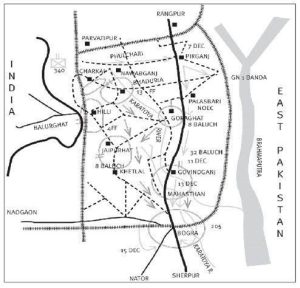
Brig Tajammul Hussain who was his brigade commander wrote,
ŌĆ£Maj Akram was a man of steel nerves. Even in the face of certain death, he motivated his men to fight with unmatched courage and valour. He was the kind of leader every soldier dreams of following in battle.ŌĆØ
The Indian 202 Mountain Brigade had deployed its battalions in a Three Up formation. They were attacking the Pakistani forces with all their might, forcing them to plunge back into counter penetration positions. Artillery defensive fires were called on regularly and the neutralizing shoots proved fatal for the Pakistani forces.
Major Akram’s company, very smartly, readjusted according to the direction of the main attack. An Anti-Tank Guided Missile was fired towards the Indian forces outflanking armored elements that were using the tactical maneuver of double envelopment of Pakistani forward defended localities. Amidst all this chaos Major Akram raised a war cry piercing the enemyŌĆÖs rate of advance.
This battle raged on for weeks, with Indian forces launching intense artillery and aerial attacks to break the PakistanŌĆÖs resistance. Yet, Major Akram remained undeterred. His steadfastness turned Hilli into a symbol of defiance, and his actions became a source of immense pride for the Pakistan Army. On December 5, 1971, during one of the fiercest engagements, Major Akram was hit by enemy fire. He shot down three Indian tanks and while he was aiming the fourth one, the machine gunner of the tank targeted him. Even in his final moments, this brave officer refused to abandon his post. His martyrdom became a turning point in the battle, leaving a legacy of sacrifice and honor that continues to inspire hundreds of young men.
For his extraordinary bravery and selfless devotion, Major Akram Shaheed was posthumously awarded the Nishan-e-Haider, PakistanŌĆÖs highest military honor. This recognition immortalized his sacrifice, ensuring that his story would be told to generations as an example of true patriotism. Major Akram was not just an officer, he was a symbol of PakistanŌĆÖs resilience and determination to stand firm in the face of adversity.
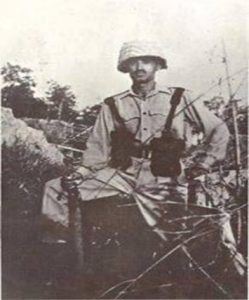
Major AkramŌĆÖs story is not just about his heroics on the battlefield but also about the ideals he represented. He embodied the spirit of sacrifice, the belief that some lives are meant to be lived not for oneself but for a greater cause. His courage reminds us of the countless sons of the soil who have laid down their lives to protect PakistanŌĆÖs honor and sovereignty. The sacrifices of heroes like Major Akram Shaheed are not mere moments of history; they are the foundation upon which nations stand. They remind us that patriotism is not just a sentiment but a duty, a commitment to something greater than ourselves. It is because of men like him that the flag of Pakistan continues to wave high.
To Major Akram Shaheed and all the martyrs of Pakistan, we owe a debt of gratitude that can never be repaid. Their sacrifices are the flames that light the way for future generations, reminding us of the cost of freedom and the courage it demands.
ž«┘ł┘å┘É ž»┘ä ž»█Æ ┌®ž▒ ┘å┌®┌Šž¦ž▒█ī┌║ ┌»█Æ ž▒ž«┘É ž©ž▒┌»┘É ┌»┘䞦ž©







